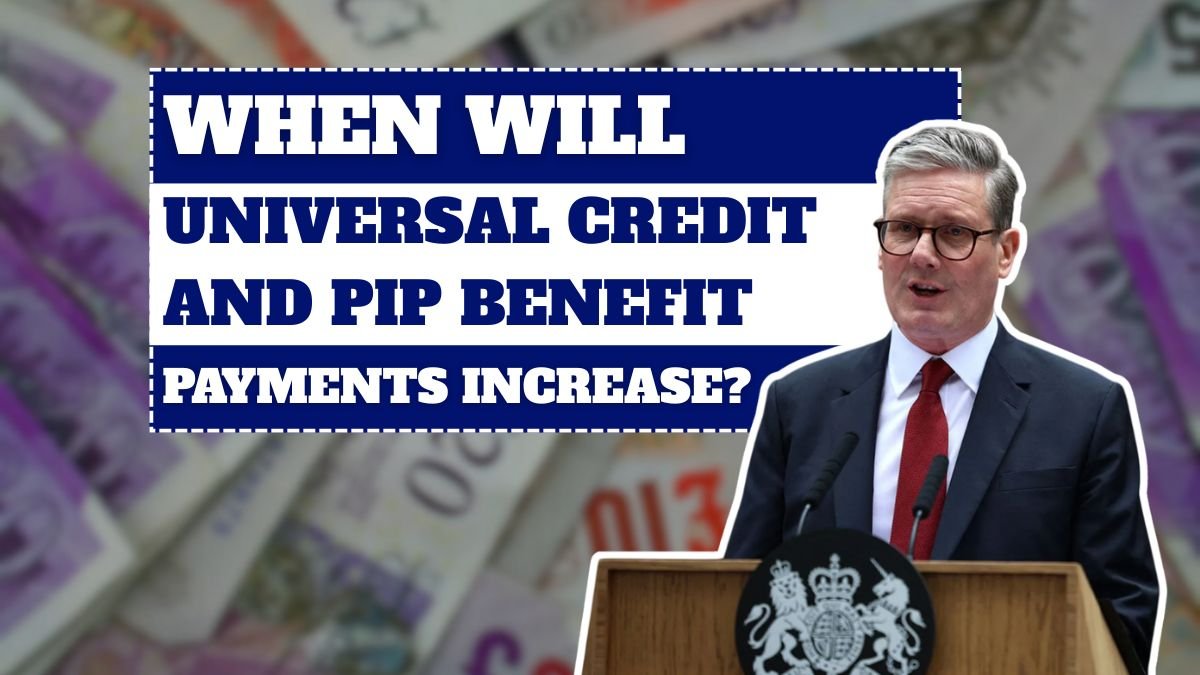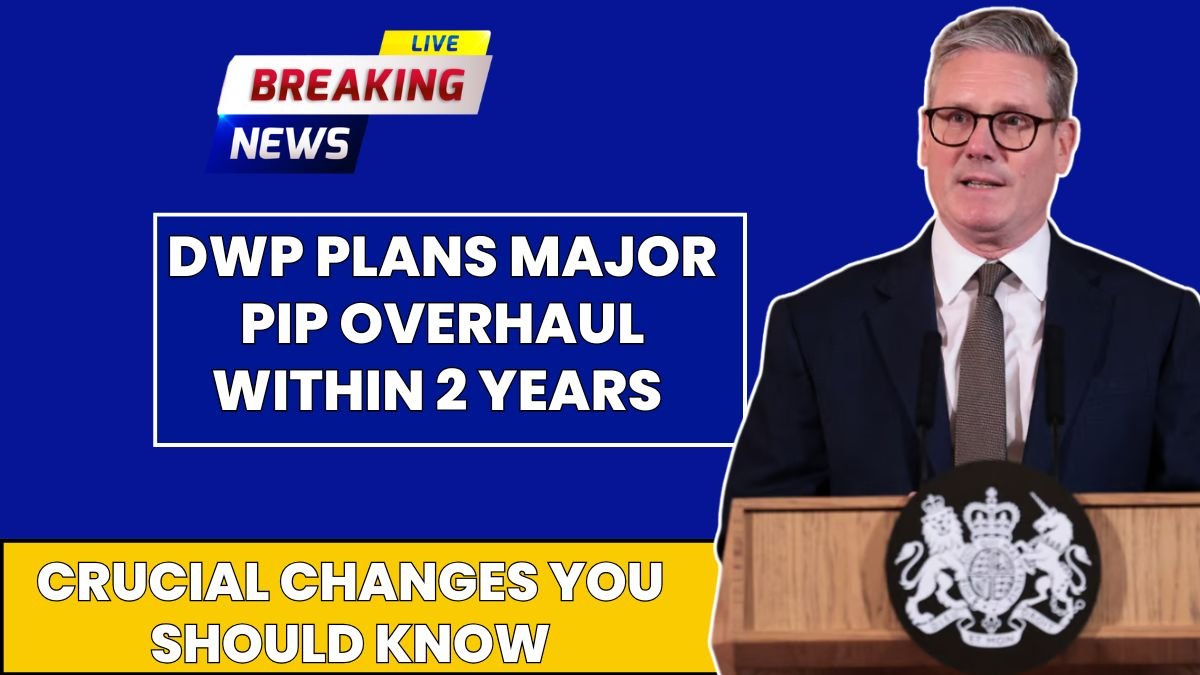Like every year, the new financial year has started in Britain on 6 April 2025 and with this, the government has announced changes and increases in many social security benefits. The main objective of these changes is to reduce the ever-increasing inflation, cost of living and economic pressure in the country. The government has taken this decision at a time when many families are facing financial difficulties, and social security benefits remain an important part of their income. In this article, we will tell you in detail which benefits have increased, how much payment will be received now, which categories will be directly affected by it, and when this change will come into effect.
Universal Credit: Minor relief against inflation, but hope is still there.
Universal Credit is one of the benefits that provides direct financial support to millions of British citizens, especially for the unemployed, low-income earners and those who work but do not get enough income. It has been increased by 1.7% from April 2025. Although this percentage may sound small, it does make a significant difference when you think about it on a monthly basis. For example, if someone is over 25 and lives alone, their monthly Universal Credit payment will increase from £393.45 to £400.14. Similarly, a single person under 25 will now receive £316.98 per month instead of £311.68. For couples, the payment will increase from £617.60 to £628.10 if one or both of them is over 25. While this increase may not sound like a big relief, it is a sign that the government is making an effort to adjust beneficiaries’ incomes in line with inflation each year.
Housing Benefit and Local Housing Allowance: Frozen Rates and the Rent Burden Crisis
When it comes to housing, rising rent rates have made it increasingly difficult for the lower and middle classes to rent a home. Housing Benefit, which is now incorporated into the housing element under Universal Credit, is not being increased this year. In fact, the government has frozen housing benefit rates until 2026. This means that people who are renting and receive support under housing benefit will still receive support at the 2020 rates—even if rents have increased several times over by now. According to one report, only 2.5% of private rented homes were considered affordable to housing benefit recipients last year. This situation has created a severe housing crisis for tenants, which is adversely affecting not only their financial well-being but also their mental health.
Tax Credit: End of old schemes, challenge of transition to new system
Tax-based benefit schemes in the UK, such as Working Tax Credit and Child Tax Credit, have long supported workers and low-income families. But now, from 5 April 2025, these schemes have been permanently abolished and have been merged with Universal Credit. This means that now these benefits will not be available separately but will be part of the Universal Credit payment. Beneficiaries who were already receiving tax credit have been sent a migration notice by the government, informing them by what date they have to apply for Universal Credit. If a person does not apply on time, there may be a temporary or permanent difference in his benefits. This change is not only technical but is also a challenging process for beneficiaries mentally and financially.
Personal Independence Payment (PIP): Relief for people with physical challenges
PIP is for people who suffer from a physical, mental or cognitive disability and need help with daily tasks. In March this year, there was concern that PIP might be frozen, but the government clarified that it would also be increased by 1.7%. This will directly affect millions of disabled and long-term patients. The standard rate under the Daily Living component has now increased from £72.65 to £73.90 and the enhanced rate has increased from £108.55 to £110.40. At the same time, the standard rate of the mobility component has increased from £28.70 to £29.20 and the enhanced rate has increased from £75.75 to £77.05. This increase is not only financial help for disabled persons but also shows that the government is recognizing their difficulties.
Employment Support Allowance (ESA): A modest but useful increase
ESA is paid to people who are ill or in a situation where they cannot work temporarily. This year, it has also been increased by 1.7%. If a person is single, he will now get £227.10 per week instead of £218.15. On the other hand, couples who rely on ESA will now get £346.60 per week instead of £332.95. Although this is not as big an increase as needed, it does show that the government wants to help the vulnerable—even if only modestly.
State pension: Big relief for senior citizens under triple lock
The state pension has been increased the most this time—by 4.1%, which was possible due to the “triple lock” guarantee. This system ensures that the rate of pension will rise each year by the highest of three factors: inflation, pay rises or a minimum of 2.5%. The new state pension, which is paid to people who retired after April 2016, will now be £230.25 a week, or £11,973 a year. Those who received the old state pension will now get £176.45 a week, or £9,175 a year. It is not only a financial support for older people but also a symbol of social security. However, there are concerns that from 2026 this amount will exceed the tax threshold and pensioners may have to pay income tax.
Carer’s Allowance: Financial recognition for selfless service
People who care for someone else for at least 35 hours a week, such as an elderly parent or a disabled family member, are paid Carer’s Allowance by the government. This year, the amount has increased from £81.90 to £83.30. This increase shows that the government wants to recognize those unseen warriors who are selflessly shouldering the responsibility of caring for the family.
Conclusion: How effective are these changes?
While the increase in these benefits may sound limited, it is like a relief for millions of people who are already living on low incomes. The government has fixed these rates according to the CPI of September 2024, which was 1.7% at that time, even though the inflation rate has subsequently increased to 2.8%. In such a situation, the question also arises whether the current policy is suitable for the changing nature of inflation. Organizations like the Joseph Rowntree Foundation have also warned that this increase is “just for show” and its impact on real life will be very limited.
FAQs
Q. When will the new benefit rates take effect?
A. Most new rates will apply from 7 April 2025, but some Universal Credit changes may reflect from June depending on assessment dates.
Q. How much will Universal Credit increase in April 2025?
A. Universal Credit will rise by 1.7%. For example, a single person over 25 will see their payment increase from £393.45 to £400.14 per month.
Q. Will Housing Benefit increase this year?
A. No, Housing Benefit rates remain frozen until 2026. The Local Housing Allowance also stays at 2020 levels.
Q. Are tax credits ending in 2025?
A. Yes, all tax credits will permanently end on 5 April 2025 and will be replaced by Universal Credit.
Q. Do I need to reapply to get the increased benefit amount?
A. No, increases are automatic. You don’t need to take any action to receive the updated payment.








